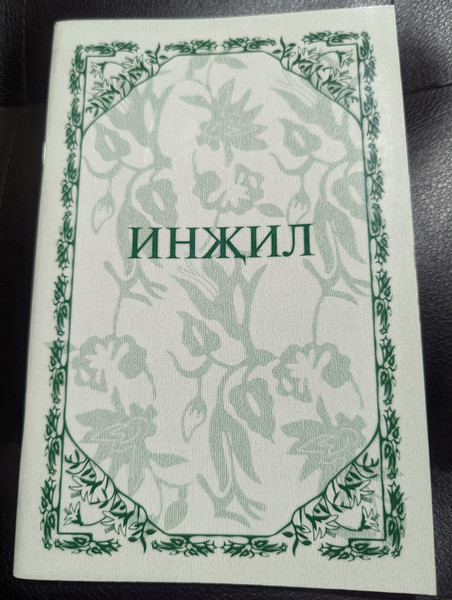Description
Nuh - Noah in Dungan Language | НУХ - Ной на дунганском языке
Overview | Обзор
Nuh - Noah is an illustrated storybook of Noah’s journey, presented in the Dungan language. This edition includes an MP3 CD with an audio narration of the story, providing listeners the opportunity to follow along in the Dungan language. It’s designed for both children and adults who are interested in learning the language while also enjoying a timeless biblical story.
"Nuh - Noah" — это иллюстрированная книга о путешествии Ноя, представленный на дунганском языке. Это издание включает MP3 диск с аудио-рассказом истории, предоставляя слушателям возможность следовать за рассказом на дунганском языке. Книга предназначена как для детей, так и для взрослых, которые хотят изучать язык и одновременно наслаждаться вечной библейской историей.
Key Features | Основные характеристики
- Format | Формат: Paperback / Твердый переплет
- Pages | Страницы: 24
- Publisher | Издатель: Фанйи Шын Жинди Щуэйуан
- Year of Publication | Год издания: 2016
- Language | Язык: Dungan / Дунганский
- ISBN-10 | ISBN-10: 9189122828
- ISBN | ISBN: 9789189122826
- Included | Включает: MP3 CD with the story narrated in Dungan / MP3 диск с рассказом на дунганском языке
Interesting Facts | Интересные факты
-
The Dungan language, spoken by the Dungan people, is a unique blend of Mandarin Chinese and Arabic influences.
Дунганский язык, на котором говорят дунгане, представляет собой уникальное сочетание китайского и арабского языков. -
The MP3 CD allows for an immersive listening experience, perfect for language learners and those familiarizing themselves with the Dungan language.
MP3 диск позволяет погрузиться в прослушивание, идеально подходящее для изучающих язык и тех, кто осваивает дунганский язык. -
The biblical story of Noah teaches values such as faith, obedience, and the promise of God's protection.
Библейская история о Ное учит таким ценностям, как вера, послушание и обещание Божьей защиты. -
This storybook is a great resource for children, families, and learners interested in the Dungan language and biblical stories.
Эта книга является отличным ресурсом для детей, семей и всех, кто интересуется дунганским языком и библейскими историями. -
The vivid illustrations enhance the storytelling experience, making it engaging for all ages.
Яркие иллюстрации усиливают эффект рассказа, делая его увлекательным для всех возрастов.
Hashtags | Хештеги
#NoahStory #DunganBible #DunganLanguage #BibleForChildren #DunganCulture #BibleStorybook #MP3BibleStory #LanguageLearning #DunganAudio #NoahInDungan
#ИсторияОНоем #ДунганскаяБиблия #ДунганскийЯзык #БиблияДляДетей #ДунганскаяКультура #БиблейскаяКнига #АудиоБиблия #ИзучениеЯзыка #ДунганскийАудио
.jpg)
.jpg)
.jpg)
.jpg)




































